Mapping Global Standards for Industrial Refrigeration: IIAR’s International Committee Leads the Way
By Yesenia Rector, MPH, CARO – IIAR VP-Education, Outreach & Events
In 2023, the IIAR International Committee launched a far-reaching research initiative to catalog the standards and codes governing industrial refrigeration systems, especially those using ammonia and other natural refrigerants—across key international markets.
The goal was clear: to create a comprehensive global reference that supports IIAR’s mission to promote the safe and sustainable use of natural refrigerants worldwide.
The result of this initiative is a dataset that provides insights into the regulatory landscape of 14 countries across Latin America, Europe, Asia, and Oceania. This research is a milestone in IIAR’s international engagement and a valuable tool for advancing natural refrigerant adoption globally.
Key Objectives of the Research
The study aimed to:
- Identify existing codes of practice and safety standards for ammonia refrigeration systems.
- Determine the level of adoption or adaptation of IIAR Standards in participating countries.
- Map relationships between regulatory authorities, national standardization bodies, and IIAR’s global partners.
- Provide actionable insights for international advocacy, education, and cooperation.
Countries Included in the Survey
The research collected detailed information from:
- Latin America: Argentina, Chile, Colombia, Costa Rica, Ecuador, Peru
- Europe: France, Germany, Italy, Spain
- Asia-Pacific: China, India, Australia
- Others: Notably, Singapore and India have also developed national standards based on IIAR 2.
IIAR Standards: A Global Reference Point
One of the most significant findings was the growing influence of IIAR Standards in international regulations:
- Colombia: Through ICONTEC, Colombia has adopted IIAR Standards 1, 2, 3, and 4.
- Costa Rica: In partnership with CIEMI, IIAR Standards were used to develop national refrigeration norms.
- Brazil: ABNT is translating IIAR Standards into Portuguese for eventual adaptation.
- Chile and Paraguay: Both are in early stages of standard adoption processes.
IIAR Standards are not just technical references, they are increasingly becoming code documents themselves. This is due to their recognition in international model codes, including:
- International Building Code (IBC)
- International Fire Code (IFC)
- NFPA Codes
- Uniform Mechanical Code (UMC)
- ASHRAE 15, which refers to IIAR Standards for ammonia refrigeration
Supporting International Adoption and Alignment
IIAR’s international strategy relies on active chapter engagement, education programs, and strategic alliances with peer organizations and regulatory bodies.
Our partnerships include:
- CIEMI (Costa Rica)
- ACAIRE (Colombia)
- Chilean Chamber of Refrigeration
- ASHRAE, UNEP Cool Coalition, GCCA, EIA, RETA, and others
These relationships are often formalized through Memorandums of Understanding (MOUs) that establish collaborative efforts for advocacy, training, and technical exchange.
What’s Next?
With the foundational research now complete, IIAR is working to:
- Regularly update the international standards matrix;
- Provide members with detailed summaries by country; and,
- Use the findings to inform technical training, standard harmonization, and future MOUs.
This project underscores the importance of interorganizational cooperation and IIAR’s commitment to shaping a safer, more sustainable global refrigeration industry.
Want to Learn More?
IIAR members can request access to the full report by contacting IIAR’s VP of Education, Outreach and Events, Yesenia Rector at Yesenia_Rector@iiar.org.
Interested in contributing to global standards advocacy? Join the IIAR International Committee and be part of this exciting work!
Frequently Asked Questions
As IIAR continues its work to advance the global adoption of natural refrigerant standards, common questions often arise regarding international alignment and recognition. Below are answers to some of the most frequently asked questions from members, partners, and industry stakeholders.
Q1: Are IIAR Standards adopted in other countries?
A: Yes. IIAR Standards have been adopted or referenced by national authorities, code bodies, or technical institutions across multiple countries, particularly in Latin America. Countries like Colombia, Costa Rica, and Chile have already integrated IIAR Standards into national regulations or design guidelines. Additionally, IIAR standards are referenced globally in international model codes such as the International Building Code (IBC), International Fire Code (IFC), Uniform Mechanical Code (UMC), and NFPA standards. These references make IIAR standards effectively part of international code frameworks.
Q2: Is there a global standard for ammonia refrigeration systems?
A: Not yet. While several international and national organizations address refrigeration system safety, there is no single, unified global standard for ammonia refrigeration. However, IIAR Standards—specifically developed for ammonia and other natural refrigerants—are increasingly recognized as the de facto technical guidance for safe and efficient ammonia system design, operation, and maintenance.
Q3: What is IIAR doing to develop a global standard for ammonia refrigeration systems?
A: IIAR is actively working with international stakeholders and partner organizations to promote the global alignment of safety and performance standards for ammonia refrigeration. In 2023, IIAR’s International Committee compiled a global inventory of codes and practices related to ammonia refrigeration across 14 countries. This initiative lays the foundation for identifying gaps, harmonizing requirements, and exploring the development of a truly global standard. IIAR’s collaboration with IIR, IoR, and other partners also supports this long-term vision.













